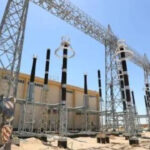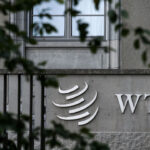The successful hosting of the Asian Games in Hangzhou, East China’s Zhejiang Province has made a splash, but some Western media outlets, habitually looking at China through a biased lens, maliciously manipulate public opinion by making use of the multi-sport event as a tool to discredit the Chinese economy. However, their hype surrounding a “collapse of China’s economy” without a factual basis will eventually fail to take root. The same goes for the “Asian Games economy.”
There are no grounds to discredit the Asian Games and say it is just a “cash-burning project” that wastes money amid “economic woes.” If those critics were not ignorant, they would at least be impressed by the following four points.
Firstly, China’s economy is indeed facing challenges, but it remains resilient. However, some Western politicians and media outlets have recently spelled doom and gloom with biased reports that mistakenly claim China is “on the verge of collapse.” The hype is completely nonsense. The IMF has predicted that China’s economy will expand by 5.2 percent this year, contributing one third of the global growth. China is fully capable of hosting the Asian Games well, as has been proven by facts.
Secondly, more than 12,000 athletes from 45 countries and regions across the continent are participating in this year’s event, making it the largest and most comprehensive Asian Games in history. Some media reports estimate the city of Hangzhou has directly or indirectly invested 200 billion yuan ($27.4 billion) in urban infrastructure construction in preparation for the historic Asian Games. If those estimates are accurate, this is indeed a significant expense. However, they seem to have overlooked a great income brought by the event.
From 2016 to 2020, the work related to the Asian Games contributed approximately 414.1 billion yuan to Hangzhou’s GDP, accounting for 7.6 percent of the same period’s GDP. It had also contributed approximately 103.3 billion yuan to fiscal revenue, while created 670,000 jobs during the same period, Economic Daily reported, citing calculations by local authorities in Zhejiang. The Asian Games in Hangzhou is not a “cash-burning project,” but rather a project that injects impetus to local development.
Thirdly, the Asian Games will be a major boost for retail sectors from sports to tourism for the host city. As reported by Economic Daily, since September this year, the search volume of hotels in Hangzhou during the upcoming National Day holidays has increased by 568 percent year-on-year, and the search of related tourism products in Zhejiang has increased by 498 percent compared to the same period in 2019. Host cities including Hangzhou have become the most popular travel destinations for tourists during the National Day holidays. The tourism boom reflects China’s consumption potential, which is completely different from an “economic woe” depicted by Western media outlets.
Fourthly, independent innovations in sectors such as green and zero-carbon technologies are in use at the ongoing Asian Games in Hangzhou, reflecting China’s technological progress. China’s rapid technological advances are playing a leading role in promoting economic growth. Amid global economic uncertainty, a technological boom has strengthened the resilience of the economy.
The successful hosting of the Asian Games, and the development of the “Asian Games economy” could help offer a window for the international community to get to know more about China, and the Chinese economy. For those Westerners who want to observe the real China and touch real lives here, they are welcomed to visit the Hangzhou Asian Games. They will see a real China that is different from what some Western media outlets portray.
(Global Times)




